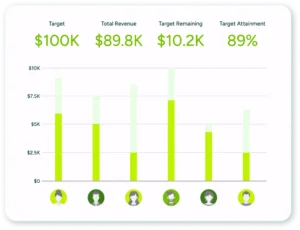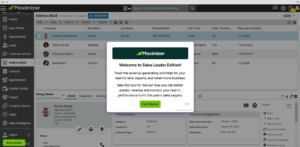Trusted by 120,000 teams worldwide
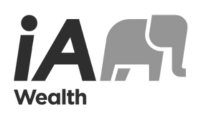

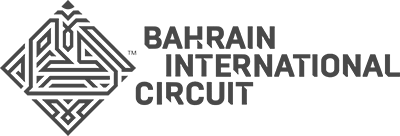

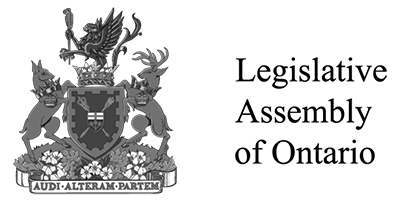

What is a CRM for estate planning?
A CRM for estate planning is client relationship management software tailored for estate planners, trust administrators, and legal professionals. Unlike generic CRMs, it offers tools specifically designed to manage complex estates, document compliance, and legacy planning needs.
The role of CRM in estate planning services
Estate planning isn’t just about assets, it’s about people. A CRM for estate planners gives you a complete view of every client’s profile, family relationships, and long-term planning goals. With detailed records and accessible histories, you can offer a more personalized, informed service at every touchpoint.
How CRM simplifies trust and legacy management
From tracking beneficiaries to organizing trustee responsibilities, CRM software for estate planning keeps every detail in one place. Automated workflows and reminders help ensure no task is forgotten especially in multi-generational plans and long-term trusts.
Centralizing client data for estate planners
No more jumping between tools. A modern estate planning CRM like Maximizer consolidates contact info, documents, communication logs, and task lists. It becomes your single source of truth for every estate plan, trust, or client relationship.
Key features of a CRM for estate planning
Client profile and asset tracking
Maintain detailed client profiles that include family trees, asset listings, beneficiary designations, and planning preferences. Track changes over time to keep plans aligned with evolving circumstances.
Trust management and document organization
Upload, categorize, and securely store wills, deeds, powers of attorney, and trust agreements. Assign access permissions and link each document directly to the relevant client or estate file.
Automated reminders for deadlines and reviews
Set calendar-based triggers for trust reviews, beneficiary updates, and document renewals. Stay ahead of key dates with automatic alerts that help you deliver proactive service.
Compliance tools for legal and tax requirements
Keep your practice audit-ready with built-in tools for managing tax deadlines, document retention policies, and regulatory requirements. Role-based access and detailed activity logs help maintain confidentiality and compliance.
Insights for legacy planning and client needs
Use built-in reporting to analyze client trends, identify upcoming review opportunities, and monitor planning gaps. These insights support better client engagement and long-term service delivery.
Benefits of using CRM for estate planning
Enhanced client relationships and trust
With every detail at your fingertips, you can respond faster, offer tailored advice, and strengthen your reputation as a trusted advisor.
Reduced admin time with automation
Automated workflows and reminders cut down on repetitive manual tasks, giving your team more time for strategic planning and client interaction.
Improved accuracy in estate documentation
Centralized data and document templates reduce errors and ensure consistency across all client files.
Scalable solutions for growing practices
As your firm expands, your CRM grows with you. Add new users, create custom workflows, and support more complex estates without disrupting your operations.
Want to learn more about
CRM for estate planning?
Book a demo with Maximizer to see how estate planning CRM can transform your practice. From reducing manual work to improving client service, our software is built for the future of legacy management.
CRM for estate planning across different needs
CRM for solo estate planners
Solo professionals need efficiency without complexity. CRM for trust management gives you the structure to handle intake, document storage, and task tracking—without needing extra admin staff.
Features for large estate planning firms
Larger practices benefit from advanced reporting, multi-user coordination, and robust document permissions. Estate planning CRM software like Maximizer ensures your entire team stays aligned and compliant.
Managing simple estates vs. complex trusts
Whether you’re managing a single-family home or a multi-generational trust with multiple stakeholders, Maximizer can adapt to different levels of complexity with customizable fields and workflows.
How to choose the right CRM for estate planning
Step 1: Assess your client and trust management needs
Begin by listing your current challenges, whether it’s missed deadlines, scattered files, or a lack of client visibility. Look for a CRM that directly addresses these needs.
Step 2: Ensure integration with legal and financial tools
Choose CRM software for estate planning that connects to your existing platforms, such as legal document management, accounting software, or client portals.
Step 3: Prioritize security and compliance features
Estate data is sensitive. Prioritize CRMs with encryption, role-based permissions, audit logs, and data backup protocols to meet legal and ethical standards.
Step 4: Evaluate usability for your team
A great CRM only works if your team uses it. Look for intuitive design, customizable dashboards, and built-in support to ensure adoption.
Why Maximizer is the top solution for estate planning
Tailored tools for estate planners
Maximizer provides features specifically designed for estate and trust management, from automated deadline tracking to detailed client profiles and document tagging.
Effortless trust and client management
Manage trust assets, keep records up to date, and maintain strong communication—all from one central dashboard.
Integration with estate planning software
Connect Maximizer to your existing legal tools, financial platforms, and secure storage solutions. You get a complete estate planning solution without the need for multiple apps.
Companies choose to partner with Maximizer
Learn why people love Maximizer
What the Best Financial Professionals Do Daily
Success in financial services isn’t just about assets under management (AUM), annual bonuses, or the number of policies sold. It's about what you do daily. In this business, momentum is built in the...
Financial Advisor Succession Planning Simplified with CRM
For many financial advisors, succession planning is a task that often gets pushed to next quarter—until it becomes an urgent necessity. Whether you’re preparing for retirement, expanding your...
Sales Collaboration: Aligning Teams for Success
Why is sales collaboration important? The Impact on Revenue Growth Sales collaboration directly impacts revenue growth by ensuring teams work toward shared goals. When sales, marketing, and customer...
Try the AI CRM designed for sales VPs
Experience the future of sales management with Maximizer. Sign up for a free trial today and see how an AI CRM can empower your sales team to achieve more.
Frequently asked questions
1. What makes a CRM for estate planning different from a regular CRM?
A CRM for estate planning includes specialized tools for managing trusts, organizing legal documents, tracking assets, and maintaining compliance with tax and legal standards. Unlike generic CRMs, it’s designed specifically for estate planners’ workflows and legacy management tasks.
2. Can a CRM for estate planning handle multi-generational trusts and complex estates?
Yes. Estate planning CRMs like Maximizer are built to support varying levels of complexity from single-property estates to multi-generational trusts. Using customizable fields, workflows, and permissions.
3. Is my client data secure in an estate planning CRM?
Absolutely. Maximizer includes robust data security features such as encryption, role-based access, and full audit trails to ensure compliance with privacy laws and protect sensitive information.
4. Does Maximizer integrate with legal or accounting tools I already use?
Yes. Maximizer connects with a wide range of estate planning tools, including legal document management systems and financial software, reducing data duplication and improving workflow efficiency.
5. How quickly can my team get started with Maximizer?
Thanks to its user-friendly interface and customizable features, teams can onboard quickly with minimal training. Support resources and pre-built templates also make it easy to tailor the system to your specific estate planning needs.
